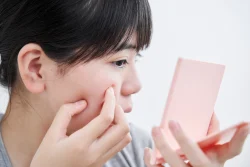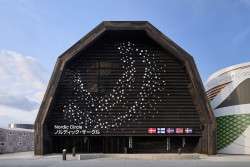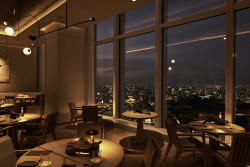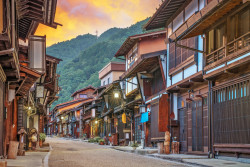
October 29, 2012
“Our Man In Abiko”
Man of mystery, blogger, editor and publisher, Abiko Free Press
By Metropolis
Originally published on metropolis.co.jp on October 2012

How long have you been in Japan and what brought you here?
Five years this time, though first time round I was here from 1997 to 2000. The first time was to woo a Japanese girl, the second to return with her. In the UK, I was working as a sub-editor at a local paper and could see newspapers were on their last legs. She was working at a car factory and we were struggling to stay afloat and have enough time to spend with our kids, not to mention keeping the Japanese mother-in-law happy in the other world that is the British East Midlands. So, we thought we’d take a chance starting our own English school in Abiko, Chiba Prefecture. It was the end of the (Joban) line.
Apart from being a prolific author and editor, what else keeps you busy?
The cover life is pretty full what with running the English school, and being the family man. I try to run a bit too. I’ll be taking part in the annual half-marathon slog round Teganuma, the local cesspool of a lake, this year for the fourth time. I’m also helping my wife with www.freetohoku.blogspot.com, a charity we set up to help tsunami orphans.
After publishing Quakebook (2:46 Aftershocks), you set up the Abiko Free Press. Tell us more.
Quakebook was a revelation. Before that, I had only vague notions of book publishing. Pulling together the talents of 200 writers, editors, designers, PR experts, Amazon people, Twitter folks and so on—in a week—for a charity book was a baptism by fire. And great stress-inducing balls of fire. I mean fun. It was definitely fun. I wanted to see if we could reincarnate some of that DIY spirit after the need for charity had passed, this time for democratic publishing. It seemed that technology changes ripping up traditional book publishing, as blogs and social media did to newspapers before, opened more doors than they shut, certainly for a publishing outsider like myself. Publishing is far too important—and fun—to leave to others. A former Quakebook editor, Dan Ryan, agreed and we set up the Abiko Free Press with a notion to publish cutting-edge stuff about Japan in English, taking advantage of all that technology has to offer. A “Charles Tuttle for the 21st century,” as Dan puts it.
What have you published and what’s on the horizon?
Four titles so far, but expect at least another two before year’s end. Our first, and bestseller, is Reconstructing 3/11, a book of eight essays by prominent Japan-based writers like Jake Adelstein, Philip Brasor, and Kiyoshi Kurokawa. It’s about the disaster’s impact a year on. Next on the horizon is Dan’s newest collection of photos and poems based on his experiences prowling the mean streets of Tokyo, code-named Tokyo Panic Stories.
Abiko has also published your novel, Hana Walker’s Half-Life 2:46, set during 3/11. What inspired you to tell such a story?
I can’t think of a bigger story in Japan, or in fact my life, than the earthquake. I’d been toying with writing a novel for more years than I care to admit, had a plot outlined and then the earthquake happened. I shelved the novel and got on with Quakebook. When I returned it seemed obvious it had to in some major way be about the earthquake.
Give us the Twitter summary…
Orphan teen hunts abducted girl through 3/11 Japan chased by yaks, cops in race against time aided by alcoholic priest. Shopping bike chase!
You publish print and digital versions of titles. Do some people still prefer dead trees?
I have no idea and actually don’t care. We release our books on Kindle because it’s Amazon, still the biggest player. If you want to read on your phone, iPad, desktop, whatever, download a free Kindle player for it. Frankly, I don’t have time to mess with it. Given a choice, I’d rather get on with creating new content than messing with formats. As far as print goes, it has its place and in fact we are planning to release Tokyo Panic Stories as a print-on-demand book. But digital is our primary focus and our goal is to build up a digital catalogue. Print is a luxury.
To purchase these books or other titles from Abiko Free Press, visit www.abikofreepress.com.







